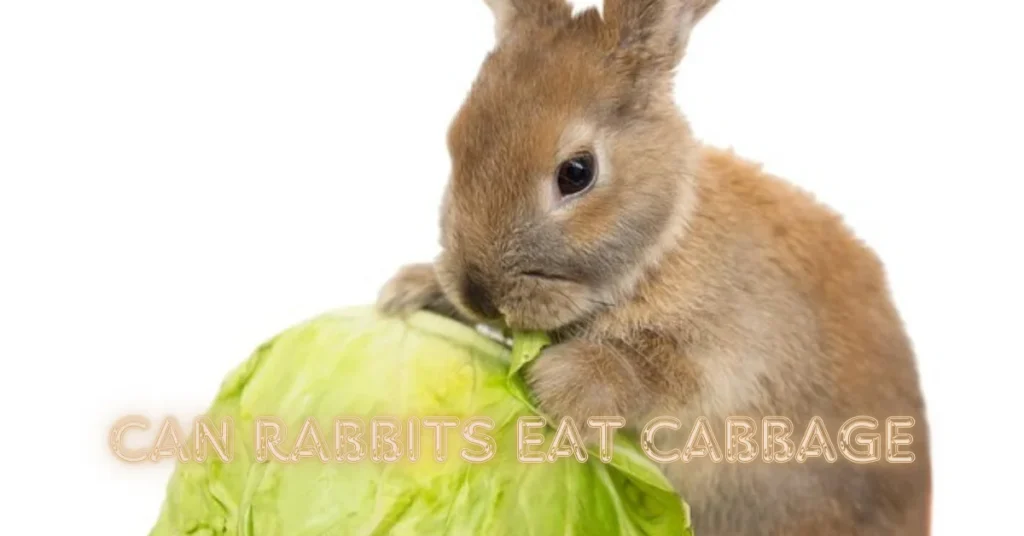Introduction to Rabbit Diet
When it comes to caring for our furry friends, understanding their dietary needs is essential. Rabbits are charming companions with unique nutritional requirements that keep them hopping happily. As a rabbit owner or enthusiast, you might find yourself wondering about the suitability of various foods for your pet. One question that often arises is: can rabbits eat cabbage?
Cabbage may seem like a harmless green treat, but not all veggies are created equal in the world of rabbit nutrition. Let’s explore what makes up a balanced diet for these adorable creatures and whether cabbage has a place on their menu.
The Importance of Variety in a Rabbit’s Diet
A rabbit’s diet should be as diverse as their playful personalities. Just like us, they thrive on variety. Different foods provide essential nutrients that support overall health and well-being.
Fresh vegetables, herbs, and high-quality hay contribute to a balanced diet. Each type of food offers unique vitamins and minerals vital for your bunny’s growth and energy levels.
Additionally, introducing a mix of flavors keeps mealtime exciting for your furry friend. It encourages natural foraging behavior and stimulates their curiosity.
However, not all foods are created equal. Some might be more beneficial than others or could cause digestive issues if fed too frequently. Rotating different greens is key to preventing boredom while ensuring nutritional needs are met.
Understanding the importance of variety helps you create a meal plan that nourishes both body and spirit in your rabbit companion.
Effects of Cabbage on Rabbits
Cabbage can be a tempting treat for rabbits, but it’s essential to understand its effects. This leafy vegetable is high in fiber, which is beneficial for digestion. However, it also contains compounds that may cause gas.
Some can rabbits eat cabbage are more sensitive than others. For those with delicate stomachs, cabbage might lead to bloating or discomfort. Pay close attention to any changes in your rabbit’s behavior after introducing this veggie.
If you notice signs of digestive distress like lethargy or reduced appetite, it’s time to reconsider their diet. Moderation is key when offering cabbage as part of their meals.
Always wash and chop the leaves before serving them fresh. This ensures they are safe from pesticides and easier for your furry friend to munch on without choking hazards.
Safe Amounts and Frequency of Feeding Cabbage to Rabbits
When considering cabbage for your rabbit, moderation is key. A small amount can be a tasty treat, but overfeeding can lead to digestive issues.
Aim for about one to two leaves of cabbage per week. This quantity allows your rabbit to enjoy the flavor without overwhelming their system.
Keep an eye on how your bunny reacts after eating it. If you notice any signs of upset stomach or changes in behavior, reduce the amount or eliminate cabbage from their diet altogether.
It’s also wise to mix cabbage with other greens and vegetables. Variety helps ensure that they receive balanced nutrients while keeping mealtime exciting.
Always wash the cabbage thoroughly before serving it fresh. Pesticides and dirt can pose risks, so cleanliness is essential for your furry friend’s health.
Other Vegetables and Greens That Are Safe for Rabbits to Eat
can rabbits eat cabbage thrive on a diverse diet that includes various vegetables and greens. While cabbage can be a tasty treat, it’s essential to know other safe options.
Leafy greens are particularly beneficial. Romaine lettuce, kale, and cilantro provide not only taste but also vital nutrients. They offer fiber that supports healthy digestion.
Carrots may come to mind as a favorite snack for many rabbit owners, but they should be given sparingly due to their high sugar content. Instead, consider bell peppers or zucchini; both are low in calories and rich in vitamins.
Herbs like parsley and basil can add excitement to your rabbit’s meal plan while introducing fresh flavors. Always wash the veggies thoroughly before serving them.
Remember that variety keeps mealtime interesting for your furry friend while ensuring they receive a well-rounded diet filled with essential nutrients.
Tips for Introducing New Foods to Your Rabbit’s Diet
Introducing new foods to your can rabbits eat cabbage diet can be an exciting journey. Start slowly by offering small amounts of the new food alongside their regular diet. This gradual approach helps prevent digestive upset.
Observe your rabbit’s reaction carefully. Watch for any signs of discomfort, such as changes in behavior or droppings. It’s essential to ensure they are comfortable with each addition.
Mixing the new vegetable with familiar favorites can encourage acceptance. For instance, if you’re introducing cabbage, pair it with their usual greens.
Consistency is key; try offering the new item a few times a week while monitoring how well they adapt. Keeping track of what works and what doesn’t will guide future dietary choices.
Patience is crucial during this process. Each rabbit has its unique preferences and may take time to adjust to novel flavors or textures.
Conclusion: Providing a Balanced and Nutritious Diet for Your Rabbit
Providing a balanced and nutritious diet for your rabbit is essential for their health and happiness. While cabbage can be a tasty treat, it should only be given in moderation. Rabbits thrive on variety, so consider incorporating other leafy greens and vegetables into their meals.
Always monitor your rabbit’s reaction when introducing new foods. This helps ensure they don’t experience any digestive issues. Remember that fresh hay should form the foundation of their diet, supplemented with high-quality pellets and safe veggies.
By staying informed about what your furry friend can eat, you’ll help them lead a long, vibrant life filled with joy and playfulness. Healthy eating is key to keeping those little noses twitching happily!
FAQs
1. What is “Can Rabbits Eat Cabbage”?
Yes, rabbits can eat cabbage, but it should be given in moderation. Cabbage is high in fiber, which is beneficial for digestion, but it also contains compounds that might cause gas or bloating in some rabbits. Introduce cabbage slowly into their diet and monitor for any signs of digestive distress.
2. How can I safely introduce cabbage to my rabbit’s diet?
Start by offering a small amount of cabbage alongside your rabbit’s regular food. Observe their reaction over a few days for any signs of discomfort or digestive issues. If they tolerate it well, you can gradually increase the amount but keep it limited to one or two leaves per week.
3. What are some other safe vegetables and greens for rabbits?
Besides cabbage, rabbits can enjoy a variety of vegetables and greens like romaine lettuce, kale, cilantro, bell peppers, and zucchini. Carrots should be fed sparingly due to their high sugar content. Always wash vegetables thoroughly before serving.
4. How much variety should I include in my rabbit’s diet?
A diverse diet is crucial for your rabbit’s health. Include a mix of fresh vegetables, leafy greens, herbs, and high-quality hay. Variety ensures they receive essential nutrients and keeps mealtime interesting. Rotate different greens and veggies to prevent boredom and nutritional imbalances.
5. What should I do if my rabbit shows signs of digestive upset after eating a new food?
If your rabbit shows signs of digestive upset, such as bloating, lethargy, or reduced appetite, stop offering the new food immediately. Reevaluate their diet and consult with a veterinarian if the symptoms persist. Ensure any new foods are introduced gradually to avoid such issues.







